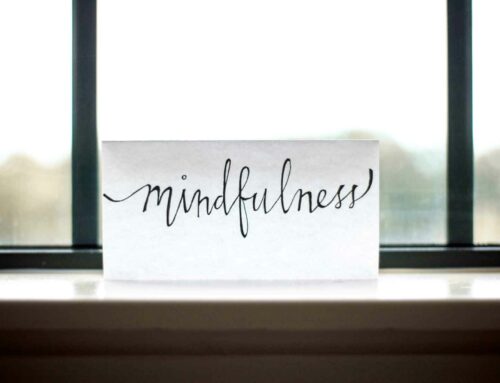Our emotions are always encouraging us to take action. Sometimes, this action would be beneficial to our situation. In other circumstances, the action wouldn’t make sense. Opposite action is a dialectical behavior therapy (DBT) emotion regulation skill to help you identify whether or not these actions make sense in the moment and what to do about them.
Emotions Come With Urges
use when the emotion doesn’t fit the facts
the four steps of opposite action
Works Best When Done “All the Way”
Emotions Come With Urges
Each emotion we experience comes with a specific action urge. For example, anger might come with the urge to fight, or the urge to break something. Fear might urge you to avoid, escape, or run away. These urges are generally self-protective and instinctual, but that doesn’t mean they will always make sense in your present-day situations.
Each emotion we experience comes with a specific action urge.
Use Opposite Action When the Emotion Doesn’t Fit the Facts
If you feel fear while walking through a sketchy alley at night, your urge might be to run out of the alley and into the street light. And by all means, do it! In this situation, your emotion fits the facts. You could be in danger and it would be beneficial to leave that situation.
You might also feel fear and have these same urges to escape or run away when you are expected to speak in public2. Although public speaking can be uncomfortable, it does not put us in imminent danger. In this situation, the urge to run away does not fit the facts. You can think, “I’m not actually in danger right now and there’s no reason to run for my life.” Then, you can fully participate in the DBT skill of opposite action to help you get through the situation.

The Four Steps of Opposite Action
1
1.
Identify the emotion. Are you angry? Ashamed? Sad? `
2
2.
Identify the action urge that accompanies the emotion. Do you want to punch a person or an object? Isolate yourself? Seek support and call a friend?
3
3.
Identify whether the action urge fits the facts of the situation (not the facts of the emotion).
4
4.
If your emotions and their urges don’t fit the situation, then channel your inner rebel and do the opposite of what the urge wants you to do. Continue to do opposite action until you notice a decrease in your emotions. In time, you will be able to see and feel the difference.
Works Best When Done “All the Way”
Opposite action works best when you’re all in. Commit to the opposite in your thoughts, words, and actions. If you only engage partially, it won’t work as well and may be equally difficult the next time the emotion and action urge come up.
Although we may not be aware we are using a DBT skill, we naturally use opposite action all the time.
Some teens love service, but others dread it and would rather avoid it. At Sunrise, our students notice that although many have a poor attitude when they initially set out to do service, they almost always end up enjoying the service activity by the time it’s over. These students notice the shift in their own emotions and are happy that they decided to participate. The next time they are asked to participate in service, they may still have some feelings of dread and wanting to do something else, but the memory of enjoying the service will make it a little easier. After several of these experiences, they start to look forward to their next opportunity to serve.
Although we may not be aware we are using a DBT skill, we naturally use opposite action all the time. When you wake up and still feel tired, your action urge is to stay in bed. You’ll want to avoid work or school so that you can sleep longer. But, unfortunately, you know you better. So instead, you act opposite and force yourself to get up, take a shower, and go to work or school. By engaging in the opposite action, you’re able to accomplish your needed tasks and activities.
WE ARE COMMITTED TO THE SUCCESS OF YOUR DAUGHTER, AND YOUR ENTIRE FAMILY
Sunrise uses more comprehensive outcomes than any other fully integrated DBT program. By integrating DBT into every aspect of our program, your daughter will live the skills, not just learn them. We focus on the family to create a healthy system in which your daughter will thrive after returning home. Through therapy, activities, academics, and support, your daughter will become a healthy young woman with a passion for life.
If practicing emotion regulation and other DBT skills at home hasn’t been enough to help your daughter and family, we’re happy to discuss treatment options with you. Call us at 866.754.4807 to determine if Sunrise would be a good fit for your daughter.
Download Emotion Wheel.
References
1 “13 ways to overcome your fear of public speaking and win the room” CNBC, October 11, 2016




